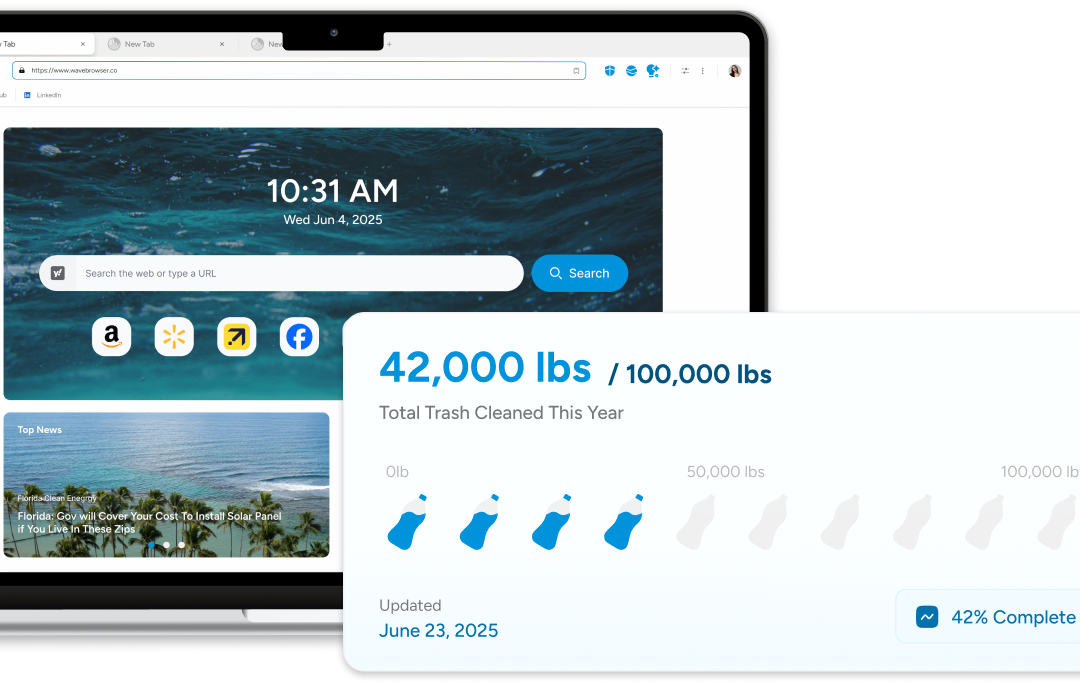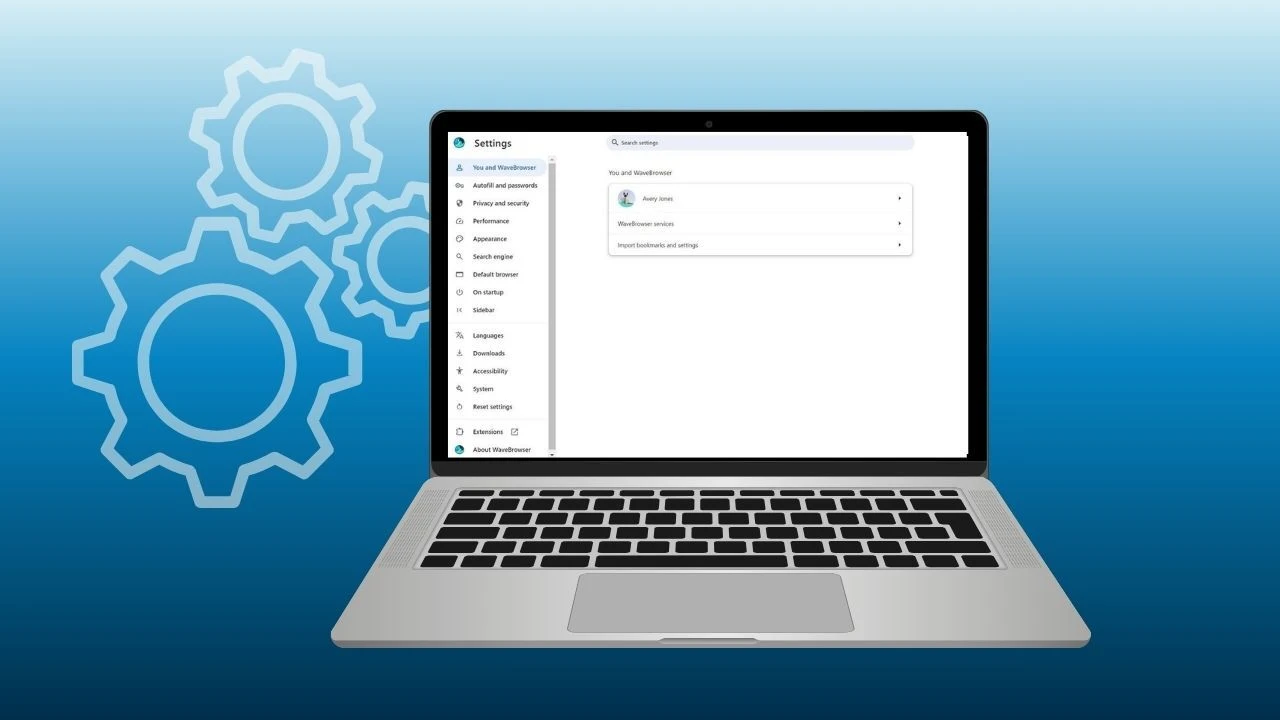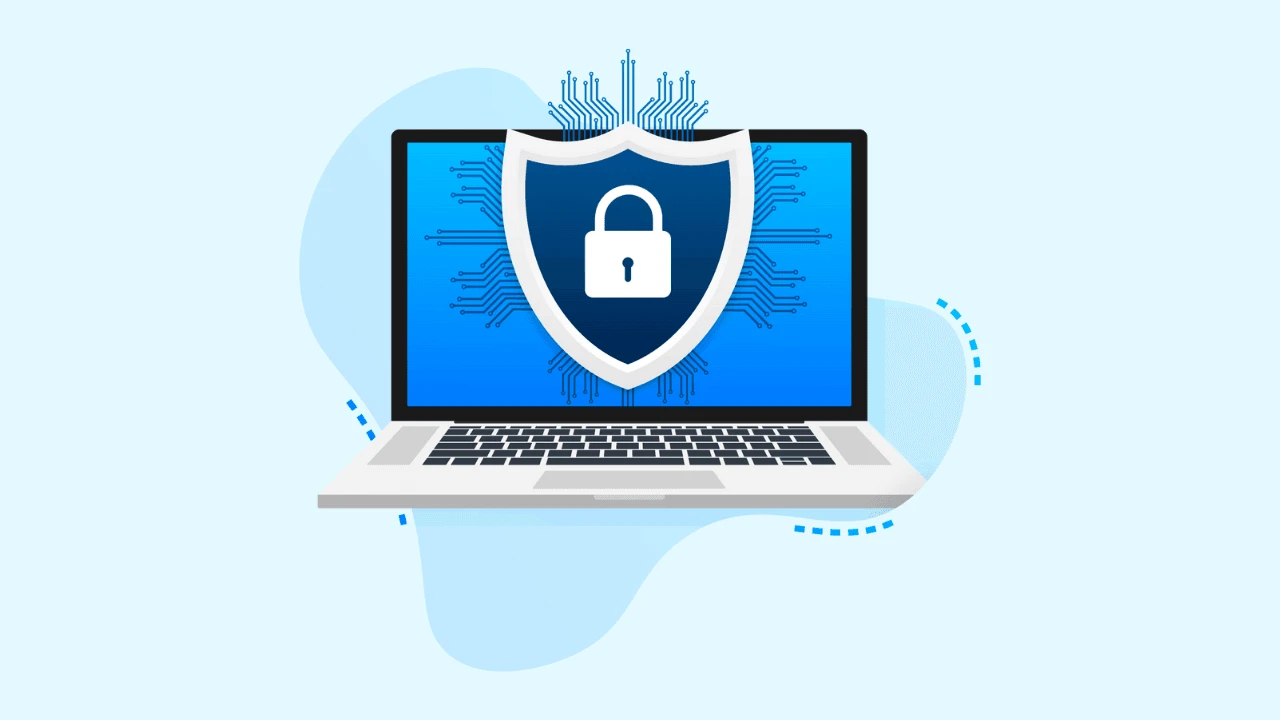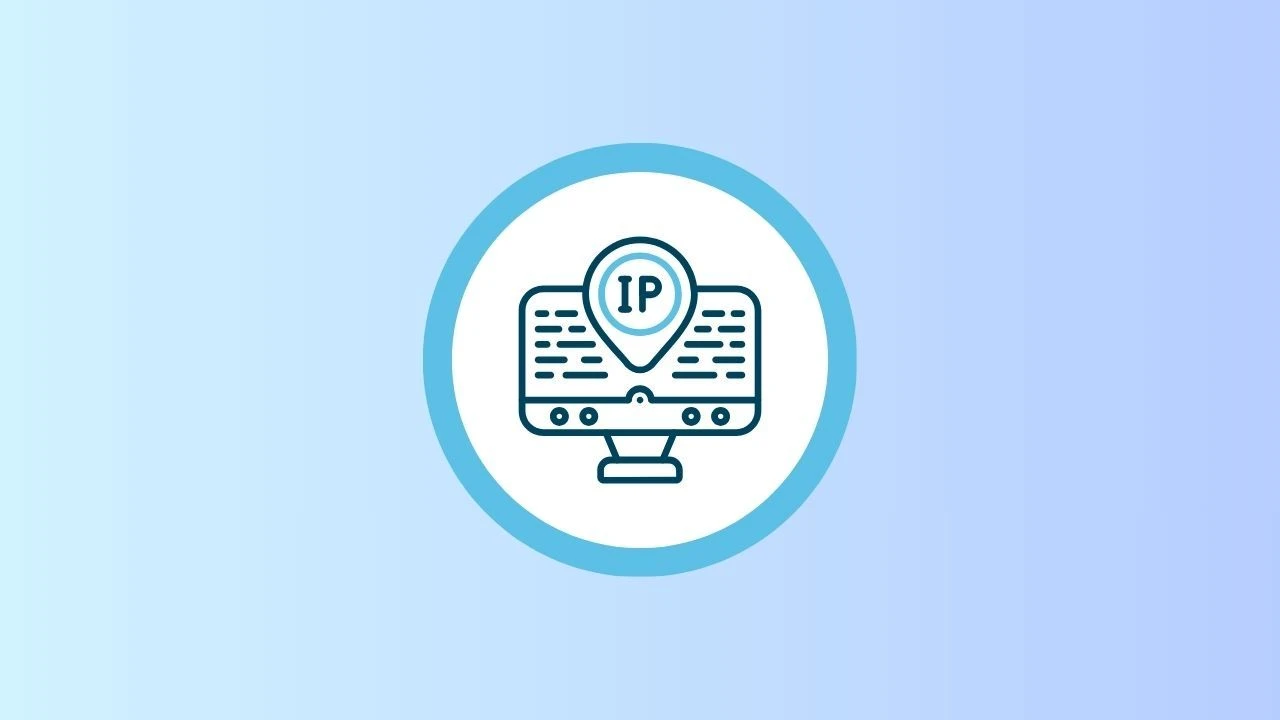
Sustainability isn’t just a trend—it’s a necessity. From climate change to resource depletion, the challenges we face demand smarter choices and collective action. While recycling is a great start, real impact comes from going further—adopting clean energy, conserving water, and rethinking how we live and work.
At Wave Browser, we believe in practical, forward-thinking solutions that reduce environmental impact and support a healthier planet. When companies embrace sustainability, they lower their carbon footprint and inspire positive change. We invite you to join us as we explore everyday steps—big and small—that go beyond the basics to help create a cleaner, greener future.
What Are Sustainability Initiatives in Business?
Sustainability initiatives in business are strategies, programs, or actions that companies take to reduce their environmental impact, promote social responsibility, and support long-term economic viability. These efforts aim to balance profit with purpose—and make a positive difference for people and the planet.
Let's explore some common sustainability initiatives in business.
1. Switching to Renewable Energy
Sustainable energy is one of the best ways to help with climate change. When businesses work on lowering greenhouse gas emissions, they can make their carbon footprint smaller. But, it is new ideas and tools that make these energy-saving plans work well.
Adopting renewable energy is a key sustainability initiative.
Many companies now use solar panels, wind power, and AI-driven energy systems to cut fossil fuel use and reduce greenhouse gas emissions. These steps lower environmental impact and boost energy resilience.
Installing rooftop solar or partnering with green energy providers are simple yet effective moves. When businesses integrate clean energy into daily operations, they show real commitment—not just to sustainability, but to a better future for everyone.
2. Carbon Footprint Reduction
Smart energy management systems are now very important for businesses that want to lower their overall carbon footprint. These systems use AI and eco friendly technology to help with energy use and to make things run better.
AI-based solutions look at how people use energy and then change settings to stop wasting it. For example, smart sensors can control lights and heating by seeing when people are there. This cuts down on energy that is not needed. When companies start using these methods, they can lower greenhouse gas emissions and save on running costs over time.
Using these things lets businesses keep up with sustainability on every part of how they work.
3. Water Conservation Projects
Water conservation is a also key sustainability initiative. Beyond turning off taps, businesses can take real action through smart water systems and projects, like:
- Rainwater harvesting – Capturing and reusing rain for landscaping and cleaning to reduce reliance on city water.
- Greywater recycling – Treating and reusing water from sinks, showers, or laundry for non-drinking purposes.
- Low-flow fixtures – Installing efficient faucets, toilets, and appliances that use less water without sacrificing performance.
- Drip irrigation – Replacing traditional sprinklers with systems that deliver water directly to plants.
- Leak detection sensors – Using smart tech to catch leaks early and prevent waste.
These initiatives lower water bills, reduce strain on municipal systems, and help safeguard resources for the future. Companies that invest in water-saving technologies show leadership in sustainability and real commitment to environmental impact—not just for today, but for generations to come.
4. Sustainable Packaging
Sustainable packaging is a key sustainability initiative that reduces waste at the source.
By choosing recyclable, compostable, or reusable materials, businesses can significantly cut down on plastic pollution and packaging waste. It’s not just about what’s inside the box—it’s about how that box impacts the planet.
Brands that invest in eco-conscious packaging show they’re thinking beyond the shelf and into the future. From minimalist design to biodegradable materials, these choices protect natural resources and reduce environmental impact at scale.
5. Employee Engagement Programs
Sustainability works best when it’s part of the culture. Employee engagement programs turn values into action—encouraging teams to participate in cleanups, reduce single-use plastics at work, and share eco-friendly habits.
Whether it’s through green challenges, education sessions, or volunteer opportunities, these initiatives create a sense of shared purpose. When employees are engaged, they become powerful advocates for change—both inside the company and out in the world.
Frequently Asked Questions

What are some effective sustainability initiatives besides recycling?
Sustainability is about more than just recycling. Eco-friendly companies are leading the way by using renewable energy, adopting greener technologies, and designing systems that manage energy use more efficiently. Many are also reducing water waste by collecting rainwater and reusing greywater from sinks or showers.
When businesses take long-term responsibility for the resources they use, they make a real difference. These efforts not only fight climate change but also create a lasting, positive impact on the environment.
How can businesses reduce their carbon footprint beyond recycling programs?
Companies have many opportunities to lower their carbon footprint—and make their operations more efficient in the process. Switching to renewable energy, conducting regular energy audits, and adopting AI-powered smart energy systems are just a few impactful steps. These choices not only reduce greenhouse gas emissions but also streamline performance.
What role does water conservation play in overall sustainability efforts?
Saving water is essential for using natural resources wisely. Projects that help the environment—like rainwater harvesting and greywater reuse—play a big role in protecting our water supply for the future. These approaches reduce environmental impact and support healthier ecosystems. When businesses adopt smart water-saving technologies and infrastructure, they’re not just conserving—they’re making water stewardship a core part of long-term sustainability planning.
Are there cost-effective ways to implement renewable energy solutions?
Yes—using renewable energy isn’t just good for the planet; it’s also smart for your bottom line. Here are a few impactful steps you can take:
- Install solar panels or wind turbines to generate clean, renewable power.
- Use AI-powered energy management systems to optimize usage and reduce waste.
- Monitor and adjust your energy strategy regularly to improve efficiency over time.
These actions help lower your carbon footprint, reduce greenhouse gas emissions, and lead to long-term savings—all while supporting a more sustainable future.
How do these initiatives benefit both the environment and organizations?
Sustainability helps protect the environment by conserving natural resources, reducing carbon emissions, and minimizing waste. Simple actions—like using recyclable packaging, switching to renewable energy, adopting paperless systems, and offering eco-friendly products—are powerful examples of sustainability in action.
When organizations implement these practices, they not only reduce their environmental impact but also strengthen their brand, improve efficiency, and often lower costs. Choosing to be more eco-friendly isn’t just good for the planet—it’s a smart, long-term investment for businesses and communities around the world.
List of web browsers with sustainability-focused features
- Wave Browser — Supports verified ocean, river, and coastline cleanup efforts through its eco mission. Every browsing session contributes to real environmental impact, making it one of the few browsers directly tied to measurable sustainability initiatives. Wave also includes ad blocking, tracker blocking, and efficient resource usage, which reduces digital waste and energy consumption.
- EcoBrowser (various niche alternatives) — Some smaller browsers focus on low-energy performance or carbon-offset models, though their impact is usually limited compared to larger projects.
- Firefox — Not explicitly an “eco browser,” but it is open-source and optimized to reduce background processes, helping lower unnecessary energy usage.
- Opera — Features a built-in battery saver mode that reduces CPU usage and extends laptop battery life, indirectly reducing power consumption.
- Brave — Known for blocking ads and trackers by default, which reduces bandwidth consumption and lowers the energy footprint when loading pages.



























